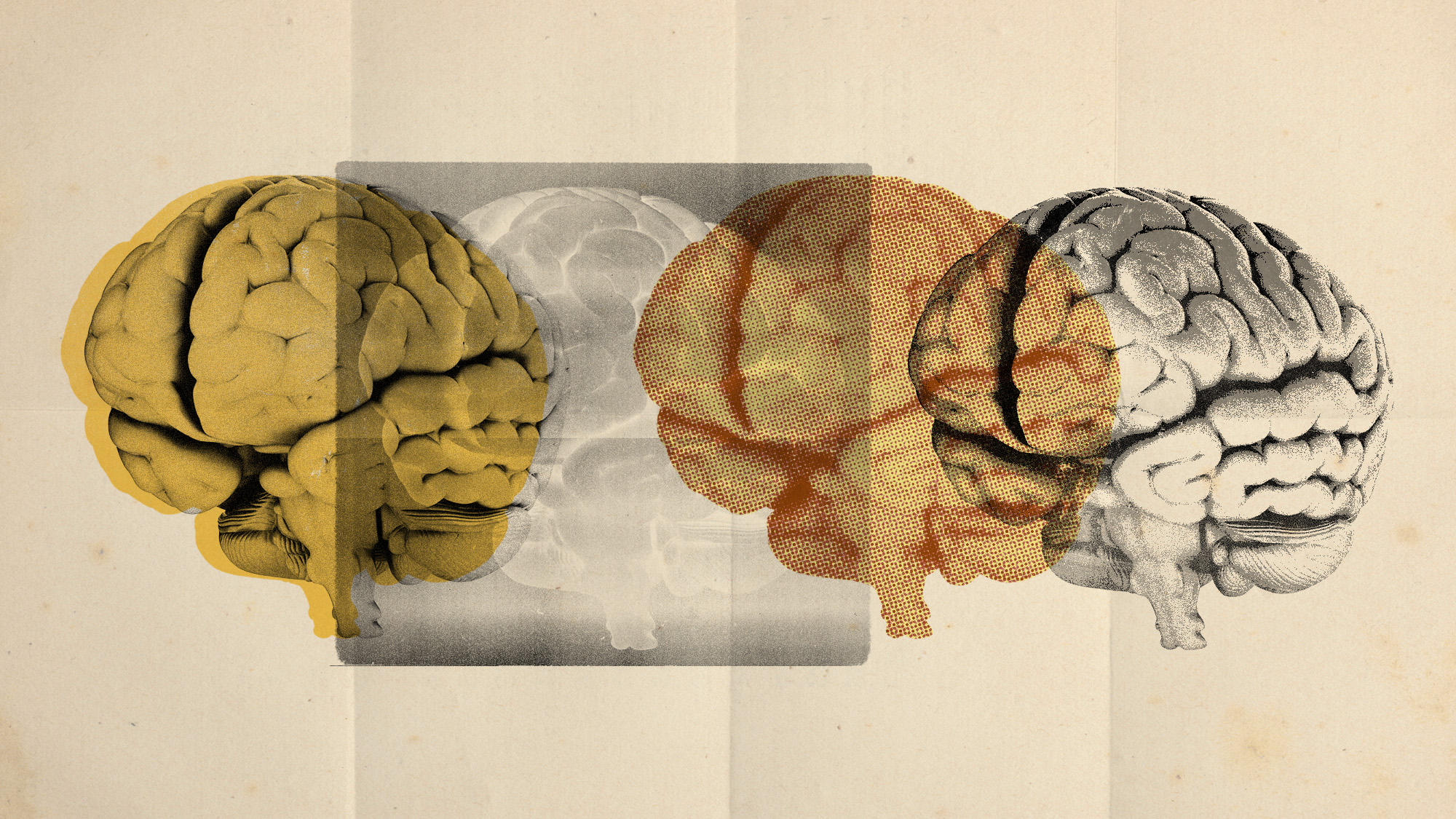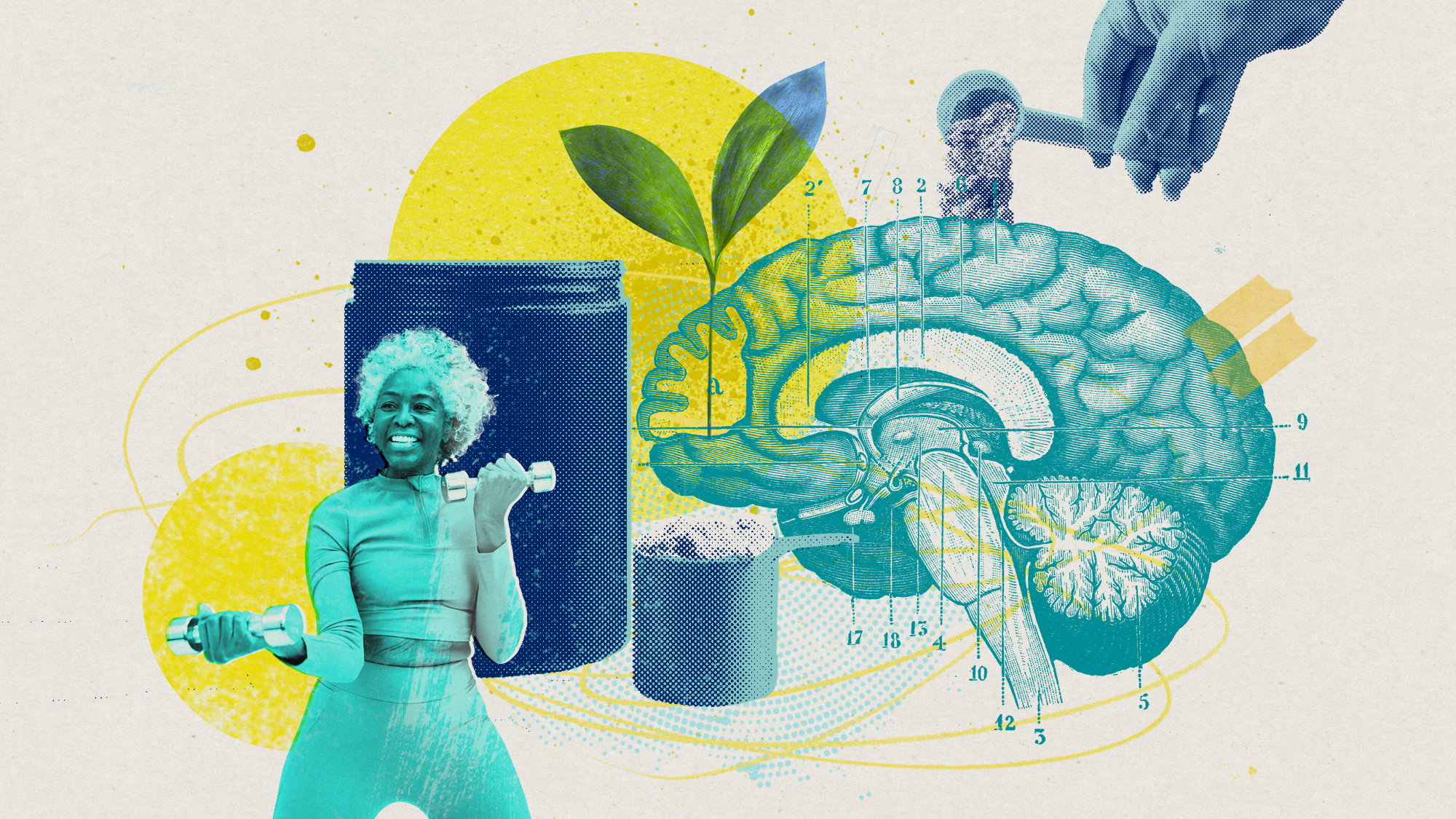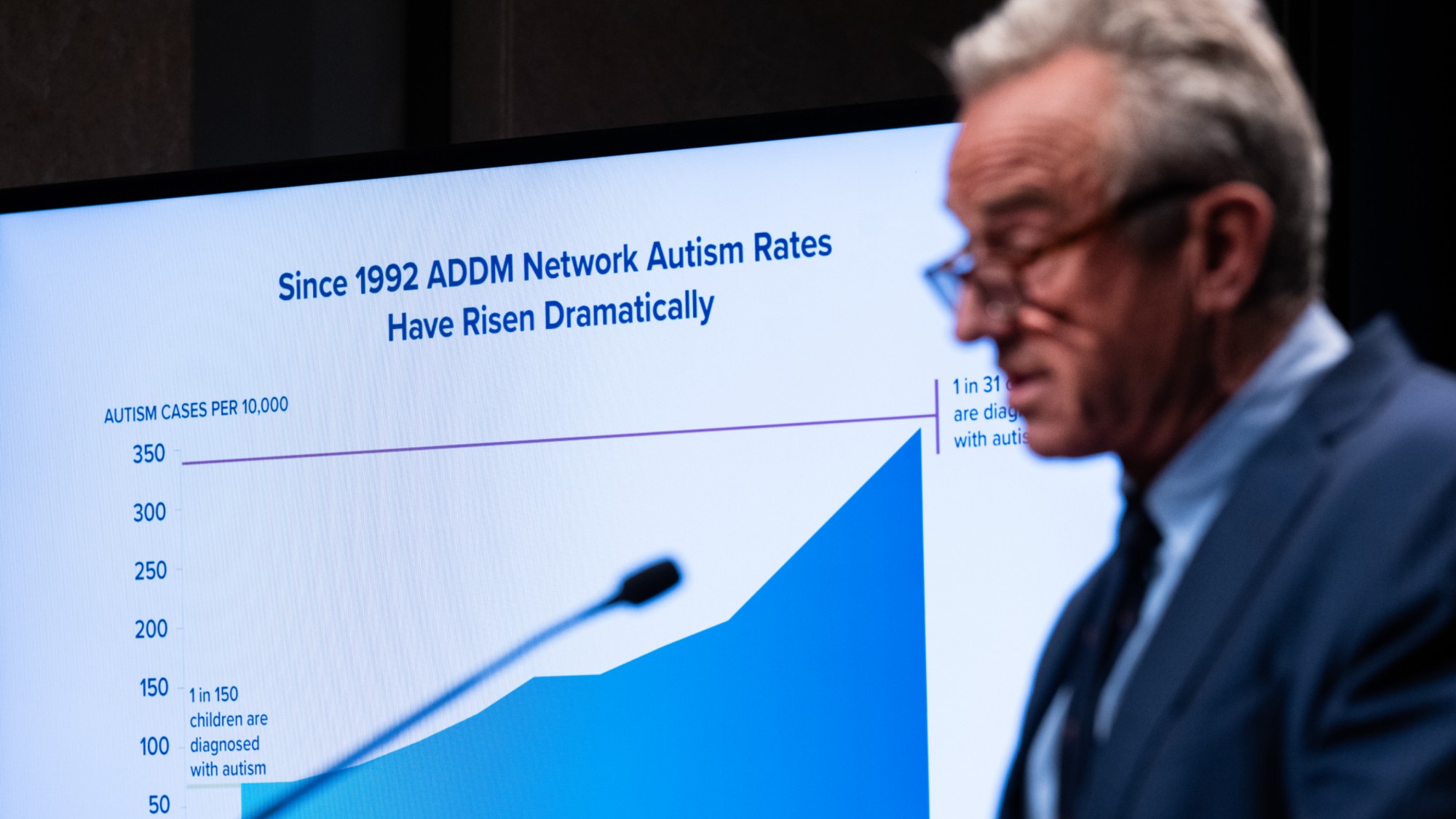PTSD: the definition, symptoms and treatment
Labour MP Nadia Whittome has spoken out about her struggle with post-traumatic stress disorder

A free daily email with the biggest news stories of the day – and the best features from TheWeek.com
You are now subscribed
Your newsletter sign-up was successful
Post-traumatic stress disorder (PTSD) is under the spotlight following the announcement by the UK’s youngest MP that she was taking “several weeks off” after being diagnosed with the mental health problem.
Labour’s Nadia Whittome, MP for Nottingham East, said that “through being open about my own mental health struggle, I hope that others will also feel able to talk about theirs”.
The 23-year-old has been applauded by high-profile figures including Labour leader Keir Starmer and his deputy Angela Rayner, who both praised her “bravery”, while Green MP Caroline Lucas tweeted her thanks to Whittome for “doing so much to tackle the stigma that still surrounds issues of mental health”.
The Week
Escape your echo chamber. Get the facts behind the news, plus analysis from multiple perspectives.

Sign up for The Week's Free Newsletters
From our morning news briefing to a weekly Good News Newsletter, get the best of The Week delivered directly to your inbox.
From our morning news briefing to a weekly Good News Newsletter, get the best of The Week delivered directly to your inbox.
Whittome spoke out months after US Democratic congresswoman Alexandria Ocasio-Cortez revealed that the fear she experienced during January’s storming of the Capitol by pro-Donald Trump protesters had been “amplified by a previous trauma she had never spoken about publicly: sexual assault”, as USA Today reported at the time.
Ocasio-Cortez’s “account aligns with what science shows happens to a mind and body under extreme forms of stress”, the news site continued. “When someone has a history of trauma, a new traumatic event, even if it's a different type of trauma, can reactivate similar feelings.”
What is the definition of PTSD?
PTSD is defined on the NHS website as “an anxiety disorder caused by very stressful, frightening or distressing events”. It can be caused by any situation that a person finds traumatic, from a road traffic accident to the experience of childbirth. Not everyone experiences PTSD after undergoing a traumatic experience: around one in three people are affected.
A free daily email with the biggest news stories of the day – and the best features from TheWeek.com
The disorder can develop immediately after the trauma occurs or much later. “Many people who experience a trauma will experience some symptoms which dissipate after a number of weeks,” says PTSD UK, a charity dedicated to raising awareness of the disorder. But “in around 15% of people, there may be a delay of months or even years before symptoms even start to appear”.
The charity adds that PTSD sufferers “can have many ‘triggers’ - sounds, smells, tastes, things you see, emotions you feel, etc, can all bring back the trauma, presented as real life”.
What are the symptoms of PTSD?
Symptoms vary from person to person but can generally be split into four categories, according to PTSD UK. The most common signs include “re-experiencing symptoms” - when a person relives the traumatic incident through flashbacks, nightmares, intrusive thoughts or physical sensations such as pain or nausea.
Sometimes a PTSD sufferer will try to avoid reminders of the incident - known as “avoidance symptoms” - possibly by shunning particular people and places. Sufferers may also use alcohol and drugs to block out painful memories, or feel a need to keep busy all the time, while others are unable to remember details of the trauma.

Some people with PTSD experience a sense of constant awareness - known as “alertness and reactivity symptoms”. Sufferers may feel jittery or always on the lookout for danger, or may have difficulty concentrating, experience insomnia, or be irritable and quick to anger.
Finally, the way that sufferers think about themselves and others may change as a result of the disorder. These “feeling and mood symptoms” may include a sense that no one can be trusted, overwhelming negative emotions such as fear, guilt or shame, and loss of interest in activities that the sufferer previously enjoyed.
How is PTSD treated?
The NHS says that PTSD “can be successfully treated, even when it develops many years after a traumatic event”. The type of treatment will depend on the severity of symptoms and how soon they occur after the traumatic event, but could include antidepressants and psychological therapies (such as trauma-focused cognitive behavioural therapy).
Alternatively, doctors may recommend “watchful waiting” - where patients are monitored to see whether their symptoms improve or get worse without treatment.
To seek treatment for PTSD, you can see your GP or self-refer to a psychological therapies service.
Experts recommend seeking support if symptoms last for longer than around four weeks, or if the symptoms are “particularly troublesome”, says PTSD UK.
Kate Samuelson is The Week's former newsletter editor. She was also a regular guest on award-winning podcast The Week Unwrapped. Kate's career as a journalist began on the MailOnline graduate training scheme, which involved stints as a reporter at the South West News Service's office in Cambridge and the Liverpool Echo. She moved from MailOnline to Time magazine's satellite office in London, where she covered current affairs and culture for both the print mag and website. Before joining The Week, Kate worked at ActionAid UK, where she led the planning and delivery of all content gathering trips, from Bangladesh to Brazil. She is passionate about women's rights and using her skills as a journalist to highlight underrepresented communities. Alongside her staff roles, Kate has written for various magazines and newspapers including Stylist, Metro.co.uk, The Guardian and the i news site. She is also the founder and editor of Cheapskate London, an award-winning weekly newsletter that curates the best free events with the aim of making the capital more accessible.
-
 How the FCC’s ‘equal time’ rule works
How the FCC’s ‘equal time’ rule worksIn the Spotlight The law is at the heart of the Colbert-CBS conflict
-
 What is the endgame in the DHS shutdown?
What is the endgame in the DHS shutdown?Today’s Big Question Democrats want to rein in ICE’s immigration crackdown
-
 ‘Poor time management isn’t just an inconvenience’
‘Poor time management isn’t just an inconvenience’Instant Opinion Opinion, comment and editorials of the day
-
 ‘Longevity fixation syndrome’: the allure of eternal youth
‘Longevity fixation syndrome’: the allure of eternal youthIn The Spotlight Obsession with beating biological clock identified as damaging new addiction
-
 RFK Jr. sets his sights on linking antidepressants to mass violence
RFK Jr. sets his sights on linking antidepressants to mass violenceThe Explainer The health secretary’s crusade to Make America Healthy Again has vital mental health medications on the agenda
-
 The app tackling porn addiction
The app tackling porn addictionUnder the Radar Blending behavioural science with cutting-edge technology, Quittr is part of a growing abstinence movement among men focused on self-improvement
-
 Scientists have identified 4 distinct autism subtypes
Scientists have identified 4 distinct autism subtypesUnder the radar They could lead to more accurate diagnosis and care
-
 'Wonder drug': the potential health benefits of creatine
'Wonder drug': the potential health benefits of creatineThe Explainer Popular fitness supplement shows promise in easing symptoms of everything from depression to menopause and could even help prevent Alzheimer's
-
 Fly like a breeze with these 5 tips to help cope with air travel anxiety
Fly like a breeze with these 5 tips to help cope with air travel anxietyThe Week Recommends You can soothe your nervousness about flying before boarding the plane
-
 RFK Jr.'s focus on autism draws the ire of researchers
RFK Jr.'s focus on autism draws the ire of researchersIn the Spotlight Many of Kennedy's assertions have been condemned by experts and advocates
-
 Mental health: a case of overdiagnosis?
Mental health: a case of overdiagnosis?Talking Point Issues at 'the milder end of the spectrum' may be getting wrongly pathologised